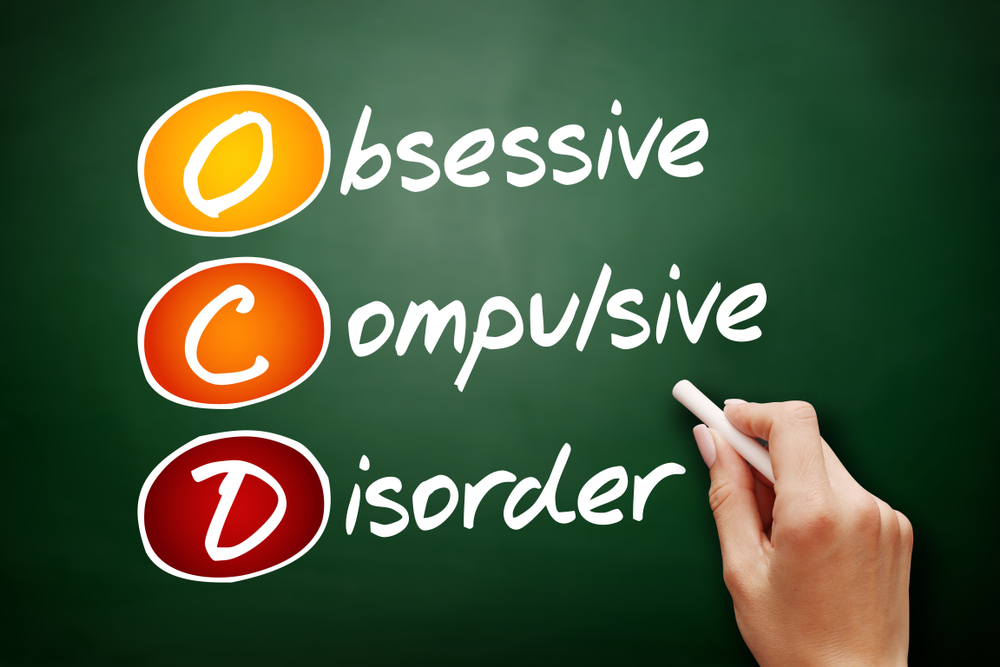We often get forgetful and keep checking if we locked the door behind us or keep making our bed because it just does not seem right. Does it ever occur to you why we obsess over these matters? What compels us to act out our thoughts?
It not only makes us anxious but also takes up a lot of our time. For instance, you might be all cozy in bed, but your thoughts keep clouding your mind to check the main door lock. If the thoughts are intrusive and interfere with your daily functioning to the extent where you feel helpless and overwhelmed, it could be due to OCD (obsessive compulsive disorder).
Living with OCD is quite a challenge. It is time you understand the human psychology behind these obsessions and compulsions.
What is Obsessive Compulsive Disorder (OCD)?
OCD is a common mental health condition characterized by obsessive thoughts and compulsive acts. Obsessions are persistent thoughts, impulses, ideas, or images that invade a person’s consciousness. Likewise, compulsions are rigid or repetitive behaviors or acts that an individual is compelled to perform to get rid of their obsessions.
Minor obsessive thoughts and compulsions are faced by almost all of us. These often calm us and help us discipline our lives. But, a constant cycle of OCD causes distress and disrupts everyday life.
As per DSM-5, a diagnosis for OCD disorder symptoms is made when obsessions and compulsions interfere with daily functioning.
Let’s take a look at the patterns of thoughts and behavior of a person living with OCD:
Obsessive Thoughts
- Fear of being dirty or getting contaminated
- Tensed about cleaning everything around them
- Recurrent thoughts about sex or other pursuits
- Inability to fight fearsome thoughts about life
- Excessive fear of losing valuables or documents
- Thoughts about being aggressive
- Wanting to hoard things
- Being caught up in taboo thoughts
- Religious obsessions from a cultural perspective
People being urged to perform certain actions to quite their obsessive thoughts feel that the situations are out of their hands. Although, the compulsive behaviors are in a person’s voluntary control, individuals living with OCD believe that something terrible will happen to them or their loved ones if they do not perform their compulsions.
Compulsive Acts
- Excessively cleaning oneself, bathing, or toileting
- Spending most time putting things in order
- Being caught up in cleaning the house
- Repeatedly checking stove, locks, or switches
- Being engaged in seeking other’s approvals
- Counting items again and again
It is important to note here that every person’s experiences with obsessive-compulsive disorder are unique. Nevertheless, one must understand their recurrent thought patterns and the uncontrollable actions or behaviors associated with it.
Impacts of OCD on Everyday Life
OCD is a challenging condition for people going about their everyday routine. For instance, a person getting late for work spends hours on tying their tie correctly. Also, they may keep checking the door before leaving or locking their car before they enter the office building. This would push them into a situation where their job is at risk.
In other instances, a person who is always satisfying their compulsions either becomes a laughing stock or people consider them insane. For instance, an individual who keeps washing hands at a friend’s place would make others uncomfortable. In severe cases, obsessive-compulsive disorder is seen to have strained relationships.
Overall, OCD affects a person’s:
- Childhood plays
- School life
- Parenting
- Work life
- Relationships
- Hobbies
- Social life
- Communications
- Physical health
- Mental health
For most people, OCD is observed to have persisted over the years. From home to school and onto the workplace, people have faced distress due to their condition. Firstly, it is the worrisome thoughts and later the distress about being compelled to perform tasks. Therefore, it is important to be mindful of OCD symptoms and treatment plans should be revised accordingly.
Tips for Individuals Living with OCD
Follow these tips to overcome your own anxiousness and likewise help others.
Mindfulness Techniques
First off, a person with obsessive-compulsive disorder must pay attention to their symptoms. Clinicians rule out symptoms of OCD which interfere with healthy functioning of a person’s home, school, work or social life. As soon as a diagnosis is made by an expert, the person must practice some mindfulness techniques. But it is suggested to practice what specifically works for oneself.
Mindfulness is the ability to be aware and present. When the thoughts keep crowding your mind, you have to counter them. The sudden urge to act out is here replaced with some productive activities or hobbies. For instance, a person may be guided to take a walk, do exercise, meditate, or engage in some sport. The aim here is to acknowledge the presence of intrusive thoughts and gently bring attention back to the calming activity you’re supposed to be doing instead of performing the compulsion.
CBT Technique
Cognitive behavior therapy aims to address the problematic thoughts and replace them with helpful behaviors which in turn eventually reduce feelings of anxiety. For instance, a behavioral treatment exposure and response prevention are used for people living with OCD.
In this technique, the clients are repeatedly exposed to anxiety-provoking situations or objects. In this case, the individuals are kept from performing compulsive acts. Consult a psychologist in Dubai to help you through behavioral techniques.
Physical Exercise
Engaging in physical activities helps release a hormone called cortisol. A healthy cortisol level in the body keeps the muscles and bones in harmony. Basically, physical activity is effective for the overall physical and mental health of individuals living with OCD.
Research has proved that aerobics activity has contributed to lower anxiety levels in individuals and helps fight recurrent thoughts.
Join Support Groups
Understand that you are not alone in this. Seeking support for your psychological conditions eases the process of living with OCD. It is better to speak to a friend or a mental health practitioner.
Nowadays, OCD treatment centers offer support groups for people living with OCD. It engages individuals in open discussions about their obsessions and compulsions. It helps them relate and talk openly about their anxiety. It not only helps individuals better understand their condition but also helps them find comfort in others. Plus, the psychiatrist or therapist also extends support to help individuals better cope with symptoms of OCD.
Anxiety Management Techniques
Mental health professionals emphasize the importance of certain anxiety management techniques that are effective with OCD. The techniques help individuals manage their own symptoms.
Here’s a list of techniques that may be employed, such as;
- Slow breathing exercises
- Mindfulness meditation
- Hyperventilation control
- Progressive muscle relaxation
- Challenging self-talk
- Planned worry time
- Focusing on present moment
- Healthy lifestyle
Medication
Medication for OCD is only recommended in severe cases. But, it is important that the medicine is prescribed by a psychiatrist or doctor. Some antidepressants have proved to reduce the level of anxiousness in the person, help understand thoughts and channel them accordingly. The main medicines prescribed are a type of antidepressant called selective serotonin reuptake inhibitors (SSRIs).
An SSRI can help improve OCD symptoms by increasing the levels of a chemical called serotonin in your brain. The type and dose of antidepressant a doctor prescribes will depend on factors such as the person’s age, the severity of their symptoms, and any other medical conditions they have. Doctors usually start with small doses and gradually increase them to find the ideal amount for each person. It can take several weeks to a few months for someone to feel the benefits of these drugs.
Final Thoughts
If you or someone you know is living with OCD or struggling to understand how to live with OCD, then we highly recommend following the tips mentioned above. You can also visit Camali Clinic as we offer OCD treatment in Dubai. Get in touch with us today to avail our child and adult psychiatry and counseling services.





